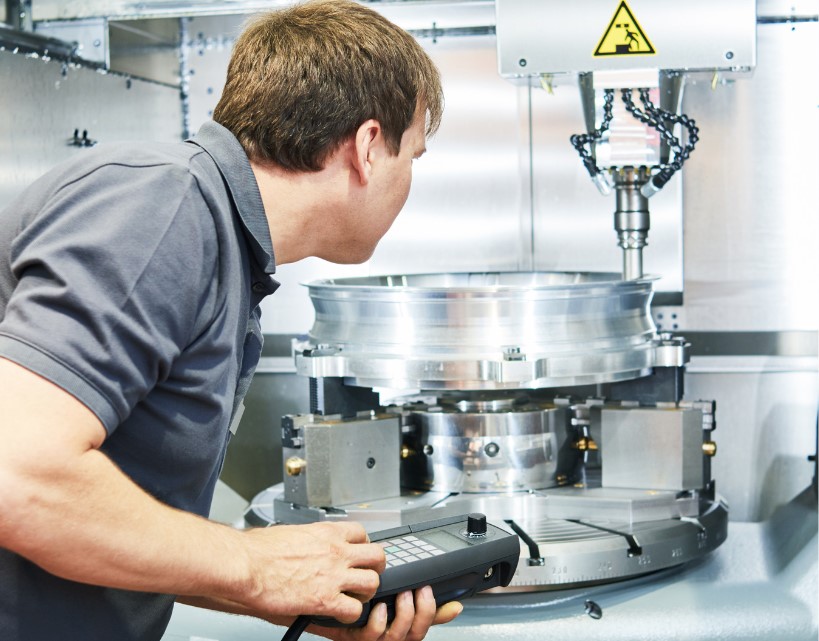Computer Numerical Control (CNC), a form of CNC machining has revolutionized manufacturing and engineering in recent decades. In integrating digital technology and traditional machining processes, CNC machining has emerged as a predominant method for making high-precision parts and pieces in various industries. This article examines the advantages and benefits of CNC-machining. It also discusses its effect on modern technology.

The Mechanics of CNC Machining
CNC machining is an subtractive manufacturing technique which means that it removes the material from a solid workpiece or block to produce the desired shape. The software that computers use to control the machine movements is pre-programmed. The code created by CNC machines is based on the kind of machine utilized and the degree of complexity of the product. However, the underlying principle is the same: A high-speed cutter precisely cuts away material to form the finished product.
The precision of CNC manufacturing is among its greatest advantages. Digitalization allows for the production of consistent and precise. This helps reduce human error while ensuring the same quality across batches. This is vital for industries such as aerospace, medical devices and automotive manufacturing, where slight deviations can have severe consequences.
The role of digitalised computers in CNC machine operations
Digital technology is the foundation of CNC manufacturing’s accuracy and efficiency. CNC machines are controlled by specialized software that automates the entire manufacturing process. It converts CAD models to precise instructions which the CNC machine follows to make the product. These instructions define everything from the cut depth and the angle to the speed of the machine.
In larger-scale industrial facilities computers are usually integrated directly into CNC machines, which allows for seamless control and communication. This integration permits real-time adjustments and monitoring to ensure maximum performance and minimize the amount of downtime. CNC processing can be automated, allowing continuous operation, increasing productivity and reducing lead time.
The Advantages of CNC Machining
CNC machining provides numerous advantages over traditional manufacturing techniques. One of the greatest advantages is its ability to produce complex and intricate parts with high-precision. The precision of CNC machines can eliminate the requirement to make manual adjustments or work rework, thus reducing waste and improving efficiency. CNC machines can also be used continuously and are great for large production runs.
CNC machining has another advantage it’s versatility. The same machine is able to make a variety of parts by simply altering the program. CNC machines can be utilized for mass production as well as prototyping due to its flexibility.
Automation of CNC machining also improves security in the workplace. Through reducing the necessity for manual intervention, the possibility of injuries and accidents is reduced. The consistency of quality in CNC machines improves the reliability and performance of products, which contributes to customer satisfaction.
Industries benefited from CNC Machining Services
In a wide range of industries CNC machining has been proven to be highly efficient, precise, and versatile. CNC machines are utilized in the aerospace industry to produce critical components which must meet strict safety and performance requirements. CNC machineries are utilized by the medical device sector for the production of complicated surgical instruments and implants. Precision is of paramount importance.
The automotive industry uses CNC machines to create engine components, transmission parts, and intricate interior and exterior features. In the same way, the electronics industry benefits from CNC manufacturing’s ability to make small, detailed parts that are used in consumer electronics and communication devices. In addition, the art and jewelry industries use CNC technology for intricate designs and customized pieces.
The future of CNC Machining
As technology advances and improve, the capabilities of CNC machineries are likely to grow further. Innovations such as multi-axis machining as well as additive manufacturing integration and the use of advanced material will push the limits of what’s possible with CNC technology. In addition, the continuous development of artificial intelligence and machine learning will surely improve the effectiveness and precision of CNC machining processes.
CNC machining is an extremely powerful tool that has transformed engineering and manufacturing in the current era. It offers unparalleled quality, flexibility and effectiveness. The ability to produce highly accurate complex parts makes CNC machining an extremely useful tool for many industries. CNC manufacturing, as the technology continues to evolve, will continue to be an integral part of manufacturing’s future.